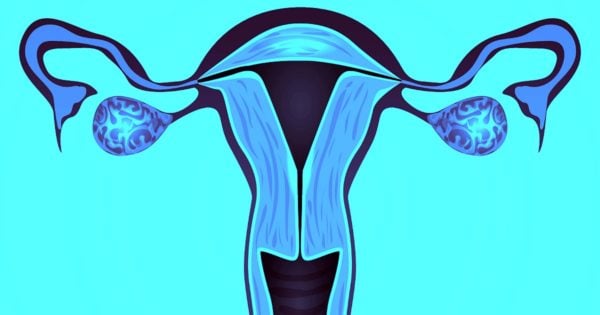If you are a person with a cervix – regardless of your sexuality or gender identity – then you need to be regularly getting a cervical screening.
That’s the message in the latest campaign from PapScreen Victoria after a study they commissioned found that 20 per cent of the LGBTQI community with cervixes in Victoria had never had a Pap test.
The tongue-in-cheek video featuring radio hosts Dano and Mason from Joy 94.9 hopes to change this.

Image: YouTube/Cancer Council Victoria
"We've both got cervixes. Cervi? We have one cervix each happily. Cervixes we've grown to like over time and cervixes we're keen to hang onto," the video begins.



